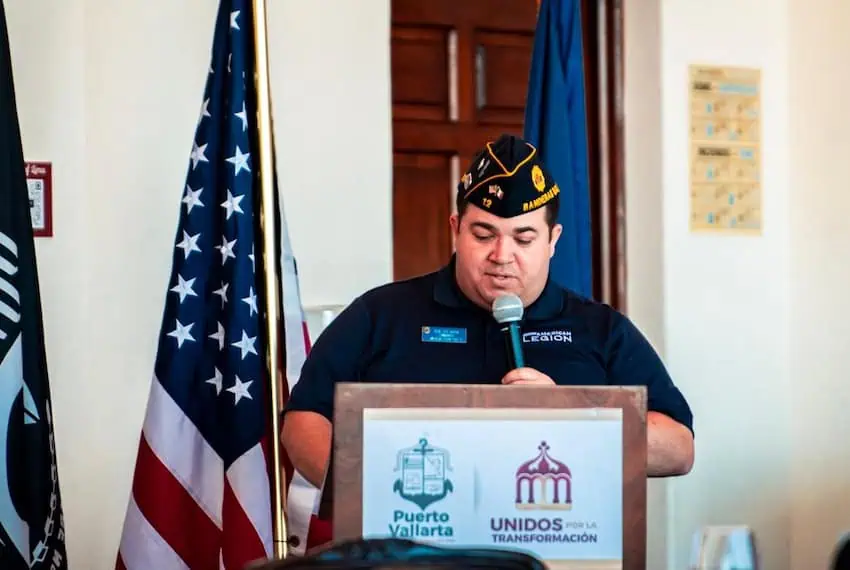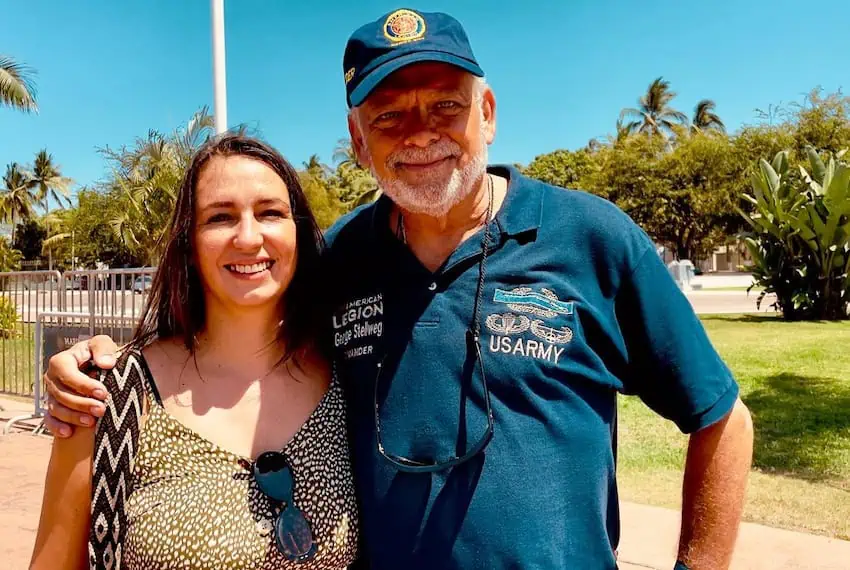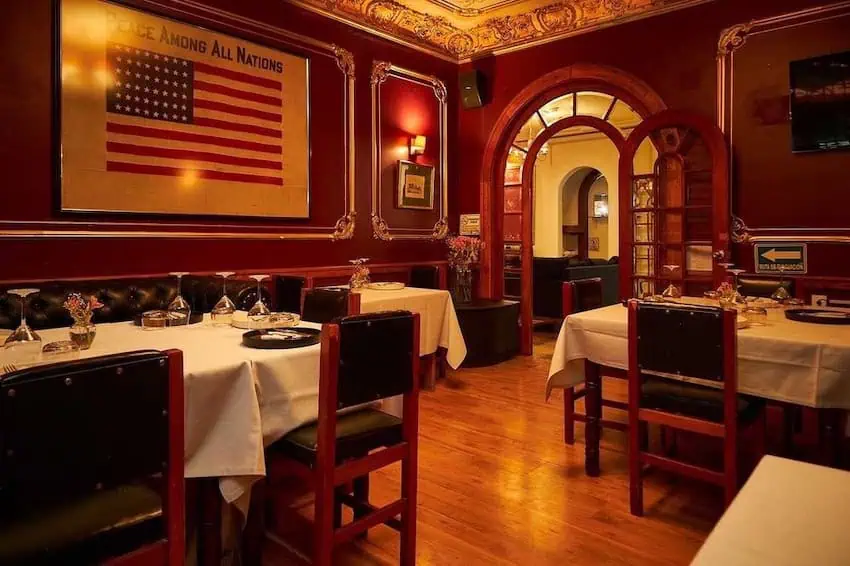On Dec. 16, 2024, Congressman Nick Lalota (NY-1) introduced H.R. 10430, the Veterans Foreign Medical Coverage Equality and Modernization Act of 2024, onto the floor of the United States House of Representatives.
If enacted, this landmark legislation would drastically improve healthcare access for tens of thousands of expatriate U.S. military veterans who live or travel abroad, particularly in Mexico, which now boasts the largest population of expat (non-active duty) U.S. military veterans worldwide.
A critical need for change
The VA Foreign Medical Program (FMP) is often the primary healthcare option for expat U.S. military veterans living or traveling abroad who are not fully retired and therefore ineligible for Tricare. However, unlike Tricare, the FMP program only covers treatments for service-connected disabilities.
This leaves the 17,000 disabled veterans living abroad who are rated 100% Permanent & Total (P&T) without coverage for non-service connected conditions. As a result, these veterans are on the hook for a broken leg, COVID-19 testing & treatment or even a life-saving treatment for a heart attack while abroad. This limitation is in stark contrast to the VA’s CHAMPVA program, which currently provides comprehensive healthcare coverage both in the U.S. and abroad to the dependent spouses, children and caregivers of disabled veterans rated 100% P&T.
The proposed legislation seeks to amend Section 1724 of Title 38 of the U.S. Code to expand FMP’s coverage abroad for these veterans. This change would ensure that veterans rated as 100% P&T receive care for all healthcare needs abroad, regardless of whether the condition is service-connected.
Jesse Cole Rivera, Commander of American Legion Post 12 in Puerto Vallarta, Jalisco, first brought the FMP program to Congressman Lalota’s attention in the summer of 2023. “Disabled veterans rated 100% Permanent & Total who rely on the VA Foreign Medical Program while living or traveling abroad deserve to get coverage that is at least comparable to that of their dependents who have access to the CHAMPVA program abroad,” said Rivera.

Modernizing the system
In addition to expanding coverage for disabled veterans rated 100% P&T, the VFMCE Act proposes modernizing the FMP’s payment and processing systems, which will benefit an additional 54,000 disabled veterans living abroad who also rely on the program, in addition to the 17,000 disabled veterans living abroad who are rated 100% P&T.
Under the legislation, all veterans and the healthcare providers treating them would benefit from the implementation of direct deposit payments and digital submission of claims, significantly reducing reimbursement times for veterans and healthcare providers abroad.
“The VFMCE Act will be a game-changer for veterans living abroad,” said Dr. Christina Boover-Lawrence of Lawrence Speech & Hearing, which operates speech & audiology clinics that treat veterans in the U.S. and Puerto Vallarta area. “By reducing reimbursement times for foreign providers, we create a system where more providers abroad are willing to treat veterans who rely on the FMP program. This increased access to care will improve patient outcomes and save lives by ensuring veterans receive timely and quality medical attention wherever they are in the world.”
George Stellweg, Commander of American Legion Post 2 in Mexico City, agreed: “Modernizing the Foreign Medical Program’s payment and processing systems isn’t just about convenience—it’s about creating a transparent and efficient system that works for veterans.”

These upgrades are also expected to save U.S. taxpayers US $12-20 million annually, which will significantly offset the costs associated with the proposed coverage expansion.
Veterans in Mexico: A growing population
In recent years, Mexico has become the most popular destination for expat U.S. veterans living or traveling abroad, with tens of thousands now residing in Mexico full-time. Many are drawn by the low cost of living, proximity to the U.S., cultural similarities and access to quality and affordable healthcare in many of Mexico’s larger cities.
Cities like Puerto Vallarta and Lake Chapala attract a lot of veterans but tend to be more popular among veterans of different generations. Younger, post-9/11 era veterans — very often raising dual citizen families in Mexico — prefer Puerto Vallarta, while older, retired Vietnam-era veterans tend to favor Lake Chapala.
Mexico City’s Condesa neighborhood, which boasts one of the oldest American Legion posts in the world — first chartered in 1920 — also remains a popular destination among expat U.S. veterans due to the post’s on-site restaurant, bar and bookstore.

Legion advocacy and community service in Mexico
American Legion posts in Mexico have been instrumental in advocating for the passage of H.R. 10430. These posts, in cities like Puerto Vallarta, Mexico City and Lake Chapala, provide not only community support but also a powerful voice for veterans abroad.
Randall Butler, a past commander of American Legion Post 7 in Lake Chapala and current Vice Commander of the Department of Latin America, expressed optimism about the bill’s prospects: “The [American Legion’s] Department of Latin America, Department of California and Department of France all look forward to seeing this bill get through the House and Senate in the 119th Congress and signed into law by President Trump.”
American Legion posts in Mexico are also deeply engaged in their local communities, often running toy drives, organizing blood drives and renovating local parks, clinics and libraries. Overall, the Legion’s work in Mexico reflects both its dedication to assisting fellow veterans and to serving others, regardless of nationality, in the local communities they now call home.
A path forward
H.R. 10430 represents a vital step toward equity for expat U.S. military veterans living abroad. By expanding coverage and modernizing payment systems, the bill promises to ensure that veterans rated as 100% P&T can access comprehensive healthcare no matter where they reside. With strong support from veterans and healthcare advocates in the U.S. and abroad, and with endorsements from large influential non-profit organizations in the U.S. like the League of Latin American Citizens (LULAC), the bill is poised to quickly make its way through the 119th Congress and deliver long-overdue justice to those who have sacrificed so much for their country.
As Commander Rivera succinctly stated, “This bill just makes sense.”
Disclaimer: The statements expressed above, by representatives of American Legion Post 12 Banderas Bay, American Legion Post 2 Mexico City and the American Legion’s Department of Latin America, should not be interpreted as statements made by or expressing the views of the American Legion’s National Executive Committee (NEC).
